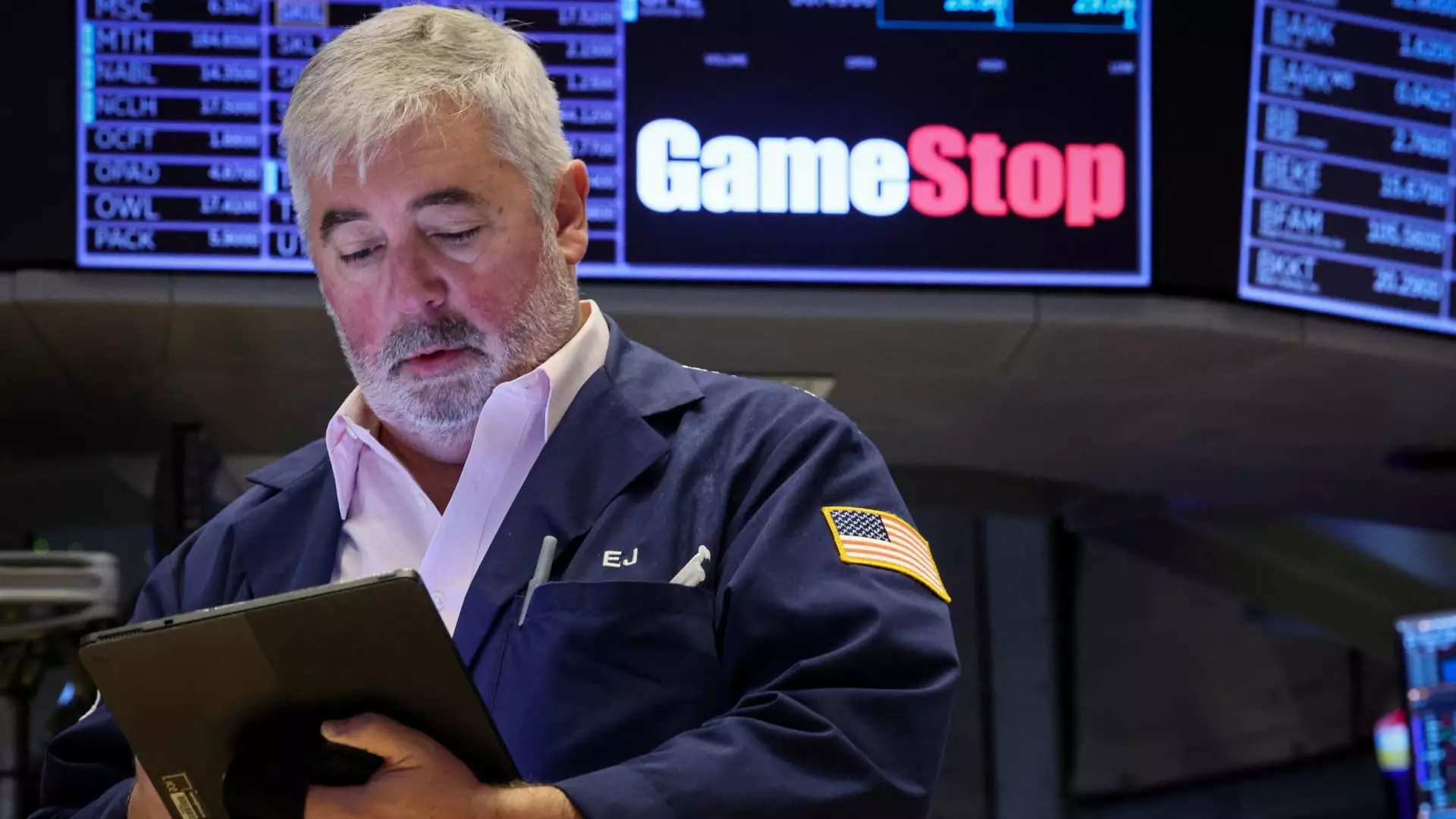In a striking turn of events, GameStop shares plummeted over 15% following an announcement that the renowned video game retailer intends to raise $1.3 billion in convertible debt to invest directly in Bitcoin. This decision comes on the heels of a brief but noteworthy rally where the stock surged nearly 12% the day prior. While investors were perhaps momentarily buoyed by the prospect of GameStop diversifying its portfolio into cryptocurrency, the subsequent market reaction suggests deeper concerns regarding the company’s overall strategy and financial health.
The Debt Dilemma: An Uncertain Future
GameStop’s board has boldly approved a plan to fund this cryptocurrency plunge by issuing convertible senior notes due in 2030. This move mirrors a similar strategy employed by MicroStrategy, a company that has garnered attention for its corporate adoption of Bitcoin. However, the fundamental differences between GameStop’s financial positioning and that of MicroStrategy cannot be overstated. Analysts, including Michael Pachter of Wedbush, express skepticism about the efficacy of this endeavor. The obligatory issuance of 46 million additional shares raises critical questions regarding dilution and shareholder value, suggesting that the excitement surrounding the brand may not be enough to sustain its elevated valuation.
A Valuation Conundrum: The Case Against GameStop’s Strategy
Currently valued at an astonishing $12.7 billion, GameStop’s market cap raises eyebrows, particularly in comparison to its cash reserves post-convertible issuance. With a projected cash balance of $6.1 billion, the valuation stands in stark contrast to MicroStrategy’s more favorable ratio of market cap to Bitcoin holdings. As Pachter notes, GameStop’s capital conversion into Bitcoin is unlikely to yield the same premium enjoyed by its competitor, leading to an inevitable decline in share price prior to market reactions to the convertible issuance. It’s troubling to think that the fervor surrounding GameStop may not justify its substantial market price—a classic case of retail enthusiasm obscuring the underlying fundamentals.
The Meme Phenomenon vs. Financial Reality
What looms large in this scenario is the war between market sentiment and financial realism. Much of GameStop’s stock rally can be attributed to its status as a “meme stock,” driven more by social media hype than solid financial performance. As the company ventures into the highly volatile world of cryptocurrency, it faces the dual dangers of market corrections triggered by both sentiment shifts and its own ambitious, yet risky, investments. If investors begin to question the sustainability of GameStop’s meme-based appeal, we could witness further erosion in share price, sending it into a downward spiral.
GameStop’s journey into the world of Bitcoin investing is riddled with pitfalls that may not only destabilize its brand but could also alienate the very retail investors who stood behind it. As the gaming industry evolves and the cryptocurrency market fluctuates, one must ponder: Is this bold move a harbinger of innovation or a reckless gamble that may ultimately lead to the company’s undoing? In the face of mounting skepticism, GameStop may need to reassess not just its financial practices but its core identity in an ever-changing market landscape.

